Industrial Epoxy Flooring Solutions for Temple Pioneer, Mesa: Durable & Efficient
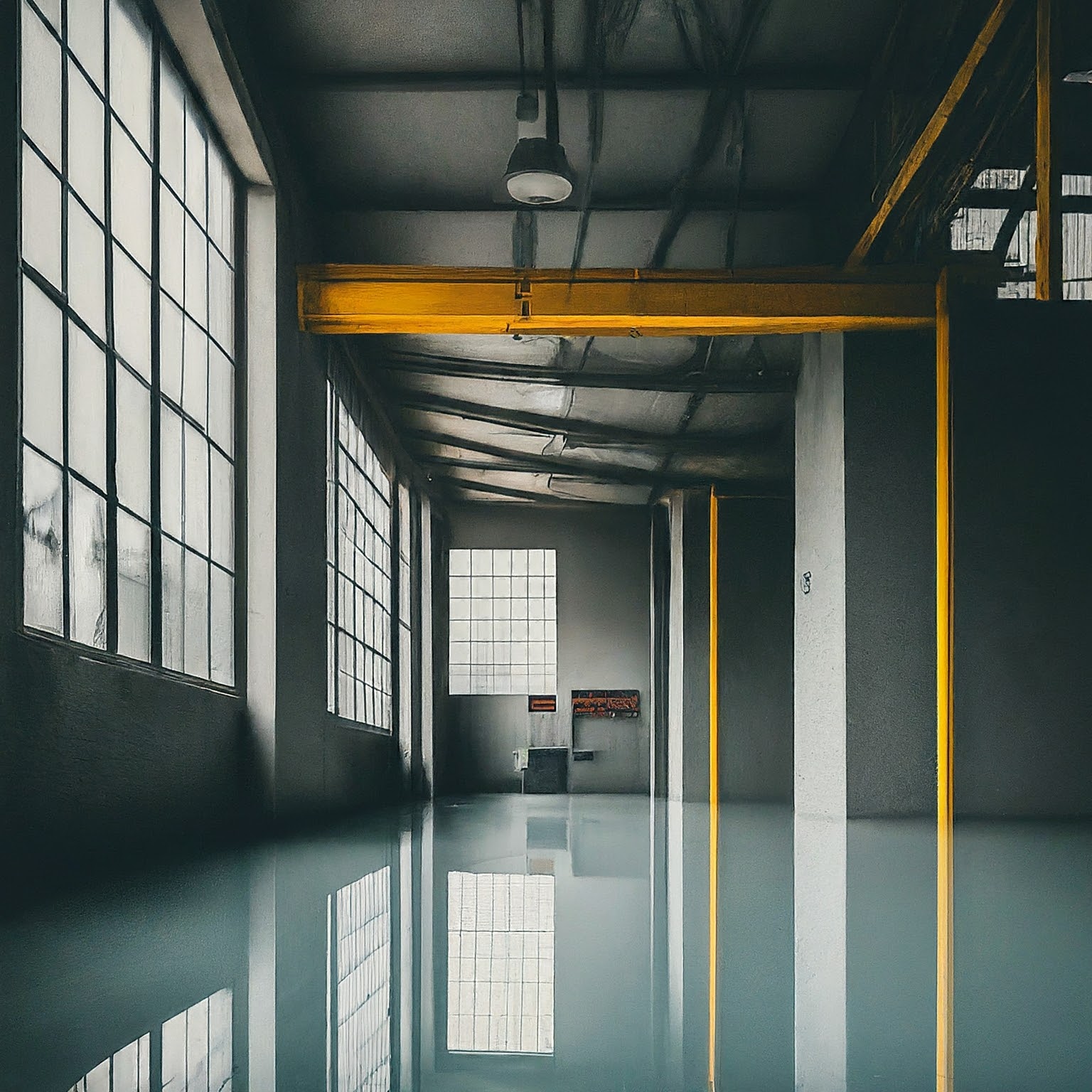
Industrial Epoxy Flooring in Temple Pioneer, Mesa: The Gold Standard for Strength
In the bustling neighborhood of Temple Pioneer, Mesa, industrial spaces are as varied as they are dynamic. From manufacturing plants to expansive warehouses, these facilities require flooring solutions that can endure the demands of heavy machinery, constant foot traffic, and the occasional chemical spill. Enter industrial epoxy flooring—a solution that combines robustness with a sleek finish, making it the gold standard for strength and efficiency.
Epoxy flooring is not just a coating; it’s a comprehensive transformation of your workspace. It provides a seamless, non-porous surface that resists abrasions, stains, and impact damage. For industries operating in Temple Pioneer, this means less downtime for repairs and maintenance, and more time for productivity. The benefits extend beyond durability. Epoxy flooring also offers a clean, professional appearance, turning even the most rugged industrial environment into a polished, organized space.
Epoxy Floor Installation: A Precision-Crafted Process
The process of installing epoxy flooring in an industrial setting is an art form that combines technical precision with meticulous preparation. In Temple Pioneer, where the demands on flooring are particularly high, the installation begins with an exhaustive assessment of the existing concrete surface. Any cracks or imperfections are repaired to ensure a flawless foundation. This step is crucial because the longevity and performance of epoxy flooring are directly linked to the condition of the underlying substrate.
Once the surface is prepped, multiple layers of epoxy resin are meticulously applied. The first layer acts as a primer, bonding with the concrete to create a strong base. Subsequent layers build up the thickness and strength of the floor, while the final topcoat provides a glossy finish that is both attractive and durable. Each layer is allowed to cure fully, ensuring maximum adhesion and resistance to wear. The result is a floor that is as tough as it is visually appealing—ready to handle the rigors of an industrial environment.
Temple Pioneer Industrial Flooring: Tailored for Tough Environments
Industrial flooring needs to do more than just look good; it needs to perform under pressure. In Temple Pioneer, where businesses span a range of industries—from automotive repair to food processing—the flooring solution must be versatile, durable, and easy to maintain. This is where epoxy flooring truly shines.
Epoxy flooring in industrial settings is tailored to meet specific needs. It can be customized with various additives to enhance properties such as slip resistance, chemical resistance, and thermal shock resistance. This makes it ideal for environments where spills, temperature fluctuations, or heavy traffic are everyday concerns. Moreover, epoxy floors can be installed in a range of finishes and colors, allowing businesses to create a visually cohesive space that reflects their brand while still prioritizing safety and functionality.
Durable Epoxy Coatings: Built to Last, Engineered for Excellence
Durability is not just a buzzword when it comes to industrial flooring—it’s a necessity. Epoxy coatings are engineered for excellence, providing a long-lasting solution that can withstand the most challenging conditions. Unlike other flooring materials that may crack, chip, or wear down over time, durable epoxy coatings maintain their integrity even under constant stress.
In Temple Pioneer, where the climate and industrial activity can be harsh, these coatings provide an added layer of protection against environmental factors. They are impervious to moisture, resistant to chemical spills, and can endure heavy impacts without showing signs of damage. This resilience translates into cost savings over time, as businesses spend less on repairs and replacements. Additionally, the low-maintenance nature of epoxy coatings means less downtime for cleaning and more uptime for operations.
Commercial Epoxy Flooring: A Smart Investment for Business Efficiency
For commercial spaces in Temple Pioneer, epoxy flooring represents a smart investment that enhances both efficiency and aesthetics. Whether you’re managing a busy retail store, a high-traffic office, or a healthcare facility, the flooring choice can significantly impact the functionality and appeal of the space. Epoxy flooring offers a seamless, easy-to-clean surface that maintains a pristine appearance with minimal effort—a crucial feature for businesses where cleanliness is a priority.
Beyond its practical benefits, commercial epoxy flooring also provides a high level of customization. With options ranging from solid colors to decorative flakes and metallic finishes, businesses can create a unique look that aligns with their brand identity. This versatility, combined with the durability and low maintenance of epoxy, makes it an ideal choice for commercial spaces looking to enhance both form and function. It’s not just about flooring; it’s about creating an environment that supports productivity and growth.
Frequently Asked Questions (FAQs) on Industrial Epoxy Flooring
What are the benefits of industrial epoxy flooring?
Industrial epoxy flooring offers numerous benefits that make it a top choice for various industrial environments
- Durability: Epoxy flooring is incredibly tough, designed to withstand heavy machinery, high foot traffic, and the daily wear and tear of industrial settings. Its resistance to impacts, scratches, and abrasions makes it ideal for factories, warehouses, and other high-use areas.
- Chemical Resistance: Epoxy floors are resistant to a wide range of chemicals, including acids, solvents, and oils. This makes them perfect for environments like automotive shops, chemical plants, and food processing facilities where spills are common.
- Easy Maintenance: The seamless, non-porous surface of epoxy flooring prevents dirt, dust, and liquids from penetrating, making it exceptionally easy to clean and maintain. This helps maintain a hygienic environment with minimal effort.
- Safety: Epoxy flooring can be customized with non-slip additives to enhance traction, reducing the risk of slips and falls in the workplace. Additionally, the high-gloss finish can improve visibility by reflecting overhead lighting.
- Aesthetic Appeal: Available in a variety of colors, patterns, and finishes, epoxy flooring can be tailored to fit the aesthetic needs of any industrial space. It provides a clean, professional appearance that can also incorporate safety markings or branding elements.
How does industrial epoxy compare to other flooring options?
When compared to other flooring options, industrial epoxy stands out for several reasons
- Versatility: Unlike concrete or vinyl, epoxy flooring can be customized with various additives to enhance specific properties such as slip resistance or chemical resistance. This makes it adaptable to a wide range of industrial applications.
- Longevity: Epoxy flooring typically outlasts other options like vinyl or tile, which can crack or peel over time. Epoxy’s durability ensures a longer lifespan, reducing the need for frequent repairs or replacements.
- Seamlessness: Unlike tiled or wood floors, epoxy provides a seamless surface with no grout lines or seams, minimizing areas where bacteria, dirt, and moisture can accumulate. This makes it a superior choice for environments requiring high standards of cleanliness.
- Cost-Effectiveness: While the initial installation cost of epoxy flooring might be higher than some alternatives, its durability and low maintenance requirements often result in lower long-term costs. This makes it a cost-effective investment over time.
- Chemical and Impact Resistance: Unlike many other flooring materials, epoxy can withstand exposure to harsh chemicals and heavy impacts without deteriorating, making it suitable for demanding industrial environments.
What is the installation process for industrial epoxy flooring?
The installation process for industrial epoxy flooring is methodical and involves several key steps to ensure a flawless, long-lasting finish
- Surface Preparation: The existing concrete floor must be thoroughly cleaned, repaired, and prepped. This involves removing any existing coatings, oil stains, or contaminants and repairing cracks or holes to create a smooth, even surface.
- Priming: A primer coat is applied to the clean, prepared surface. This helps to seal the concrete and improve the adhesion of the subsequent epoxy layers.
- Epoxy Application: Multiple layers of epoxy resin are then applied. The first layer bonds directly with the primed surface, providing a strong foundation. Additional layers build up the thickness and durability of the floor.
- Customization: During the epoxy application, decorative elements such as colored flakes or metallic pigments can be added to achieve the desired aesthetic. Non-slip additives can also be incorporated for added safety.
- Topcoat Application: A final topcoat is applied to seal the surface and provide a glossy, durable finish. This topcoat also adds an extra layer of protection against wear and chemical exposure.
- Curing: The floor is left to cure fully, a process that can take several days depending on the environmental conditions and the specific epoxy used. Proper curing is essential to achieve maximum hardness and durability.
How long does industrial epoxy flooring last?
Industrial epoxy flooring is renowned for its longevity, typically lasting anywhere from 10 to 20 years or more with proper installation and maintenance. The actual lifespan of an epoxy floor can vary based on several factors
- Quality of Installation: A professionally installed epoxy floor with proper surface preparation and multiple layers will last longer than a poorly installed one.
- Level of Use: Floors in high-traffic or heavy-duty environments may experience more wear and tear, potentially shortening their lifespan.
- Maintenance Practices: Regular cleaning and prompt repair of any damage will help extend the life of the epoxy floor. Applying a new topcoat periodically can also help maintain the floor’s appearance and protective qualities.
What maintenance is needed for industrial epoxy floors?
Maintaining industrial epoxy floors is relatively straightforward, but regular upkeep is essential to keep them in top condition
- Routine Cleaning: Sweep or vacuum the floor regularly to remove dust and debris that could scratch the surface. A soft-bristle broom or a vacuum with a hard floor attachment is ideal for this purpose.
- Mopping: Periodically mop the floor with a mild detergent and warm water to remove any accumulated dirt or grime. Avoid using harsh chemicals or abrasive cleaners, as they could damage the epoxy’s finish.
- Spill Management: Clean up spills promptly to prevent staining or chemical damage, even though epoxy is resistant to most chemicals. This practice also helps maintain a safe working environment.
- Inspection and Repairs: Regularly inspect the floor for any signs of wear or damage. If any cracks, chips, or dull spots appear, consider applying a new topcoat to restore the floor’s protective properties.
- Reapplication of Topcoat: Depending on the level of traffic and use, consider reapplying a topcoat every few years to maintain the floor’s durability and aesthetic appeal.
By following these maintenance practices, industrial epoxy floors can maintain their durability and appearance for many years, providing a reliable and attractive flooring solution for a wide range of industrial applications.
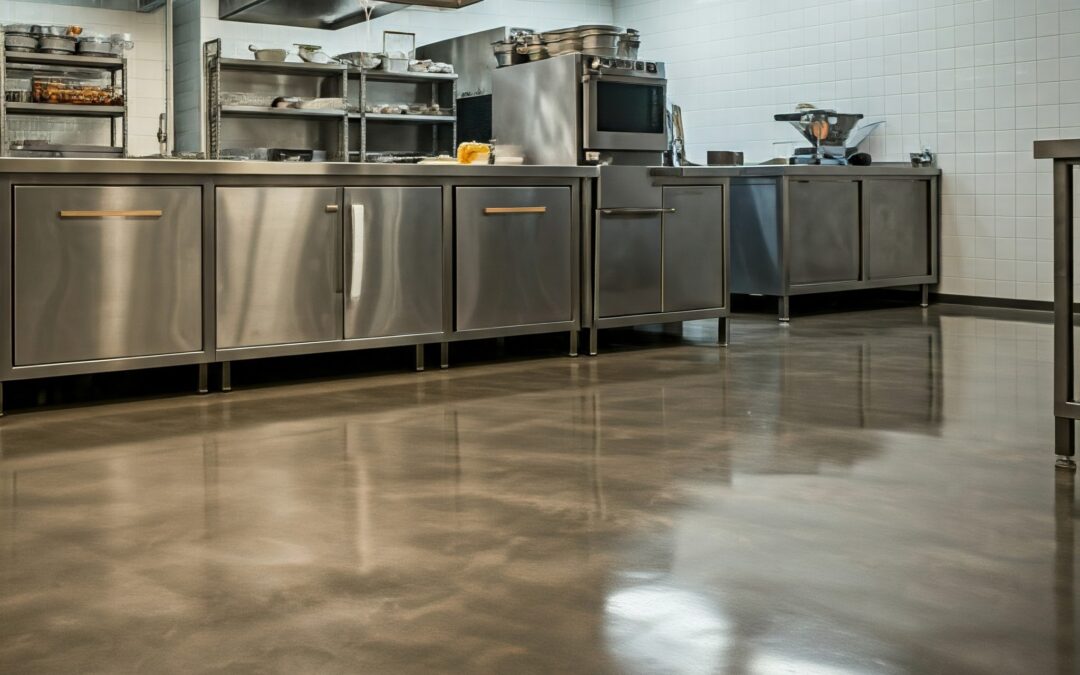
Transform Your Space with Commercial Concrete Polishing: Services and Benefits
Concrete polishing is a transformative solution for commercial, industrial, and warehouse spaces, offering durability, aesthetic appeal, and low maintenance. Whether you're revitalizing an old floor or finishing a new one, polished concrete provides a sleek and...
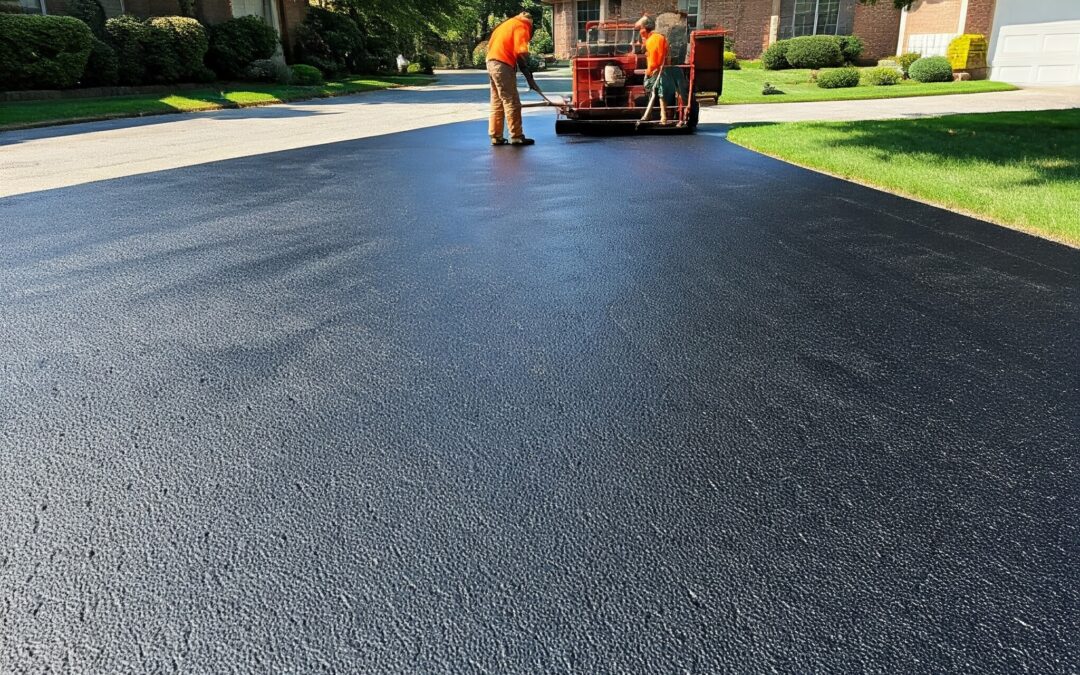
Seal Coating Driveways: Costs, Benefits, and Expert Solutions
Seal coating driveways is an essential maintenance step that protects surfaces, enhances durability, and boosts curb appeal. Whether you have asphalt or concrete, a well-applied seal coat creates a protective barrier against weather, UV rays, and wear, extending the...
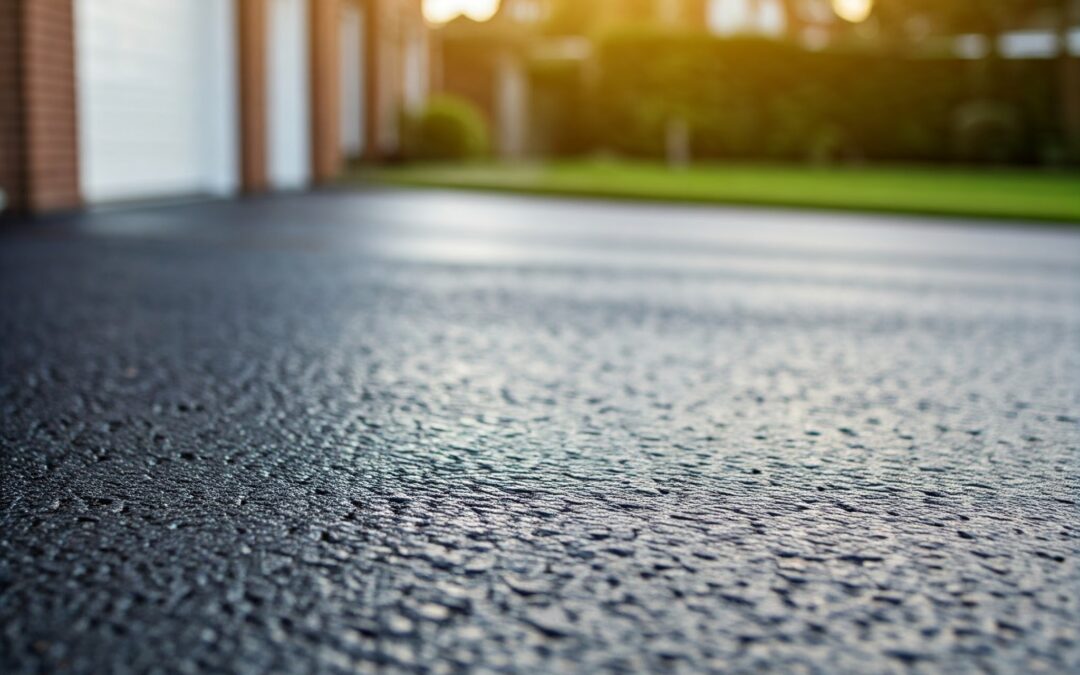
Driveway Coating Solutions: Costs, Ideas, and Best Options
Driveway coatings are essential for enhancing durability, improving aesthetics, and protecting your surface from harsh weather and wear. With various options available, choosing the right coating for your needs depends on factors such as cost, durability, and desired...
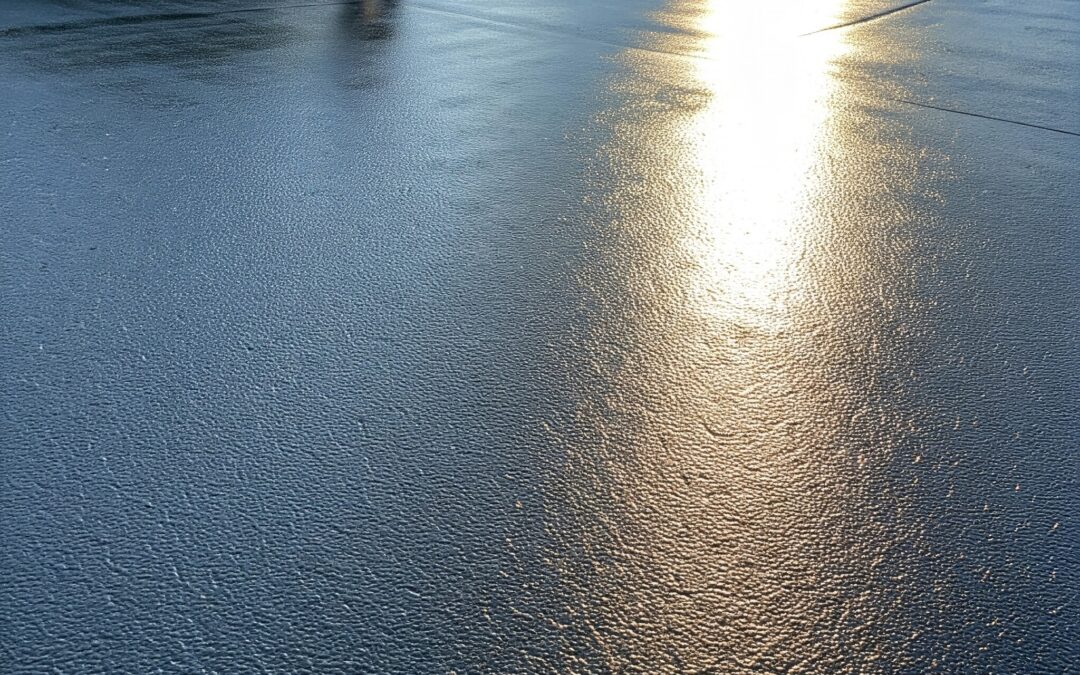
Seal Coating Driveways: Costs, Benefits, and Expert Tips
Seal coating is an essential maintenance step for asphalt driveways, offering a cost-effective way to protect and enhance their longevity. By applying a protective layer, seal coating shields driveways from wear and tear caused by weather, traffic, and UV rays. If...
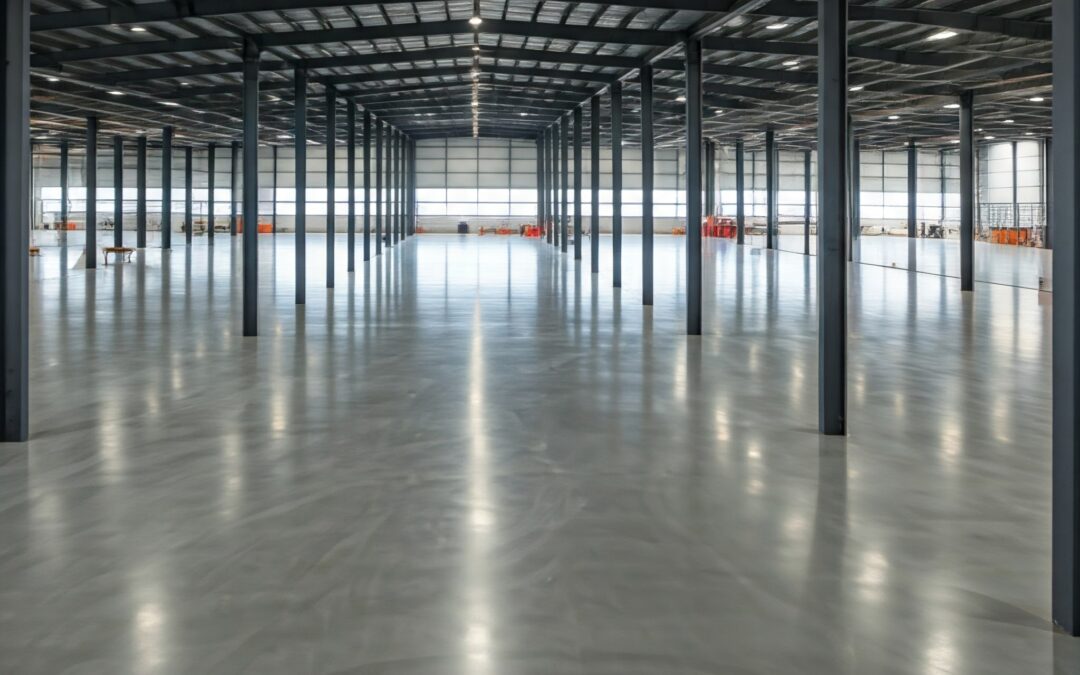
Industrial Epoxy Flooring Solutions: Durable, Safe, and Long-Lasting
Industrial epoxy flooring is a cornerstone of durable and safe workspaces, offering unmatched performance in high-demand environments. From warehouses to manufacturing plants, these floors provide resistance to wear, chemicals, and impact while maintaining a sleek and...
